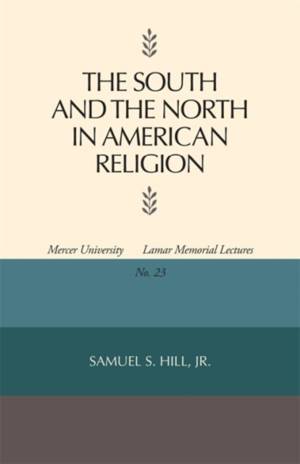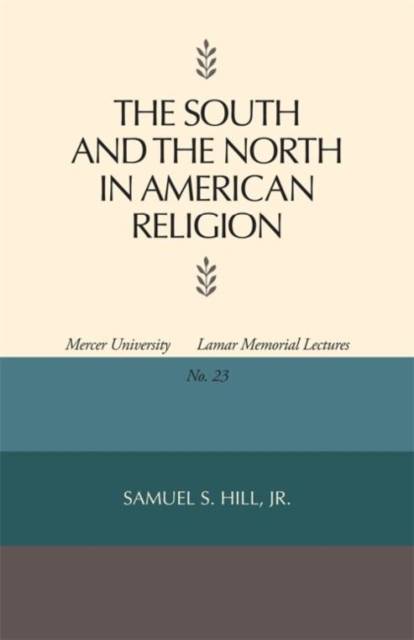
- Retrait gratuit dans votre magasin Club
- 7.000.000 titres dans notre catalogue
- Payer en toute sécurité
- Toujours un magasin près de chez vous
- Retrait gratuit dans votre magasin Club
- 7.000.0000 titres dans notre catalogue
- Payer en toute sécurité
- Toujours un magasin près de chez vous
Description
In this comparative history of religious life in the South and the North, Samuel Hill considers the religions of America from a unique angle. Tracing the religious history of both areas, this study dramatically shows how a common religion was altered by hostilities and then continued to develop as separate entities until recently. Coming almost full circle, both North and South now find their religions again to be highly similar. Two factors, Hill believes, were major influences in the diversification of the regional religions: the presence of Afro-Americans as an underclass of people with a distinctive role to play in the development of southern religious life, and the presence or absence of a large immigrant population.
Hill's overall purpose is to answer the questions: How did there come to be a South (without which there would not have been a North)? Why is the South the heartland of Evangelical Protestantism and a kind of "Bible belt"? What historical developments dispatched the two regions on distinctive courses, religiously and otherwise? How much interaction has there been between the religious institutions of the two regions? How similar and divergent have the cultural patterns, styles, and values been in "the South" and "the North"?Spécifications
Parties prenantes
- Auteur(s) :
- Editeur:
Contenu
- Nombre de pages :
- 168
- Langue:
- Anglais
- Collection :
- Tome:
- n° 23
Caractéristiques
- EAN:
- 9780820331317
- Date de parution :
- 01-12-07
- Format:
- Livre broché
- Format numérique:
- Trade paperback (VS)
- Dimensions :
- 140 mm x 216 mm
- Poids :
- 226 g

Les avis
Nous publions uniquement les avis qui respectent les conditions requises. Consultez nos conditions pour les avis.






